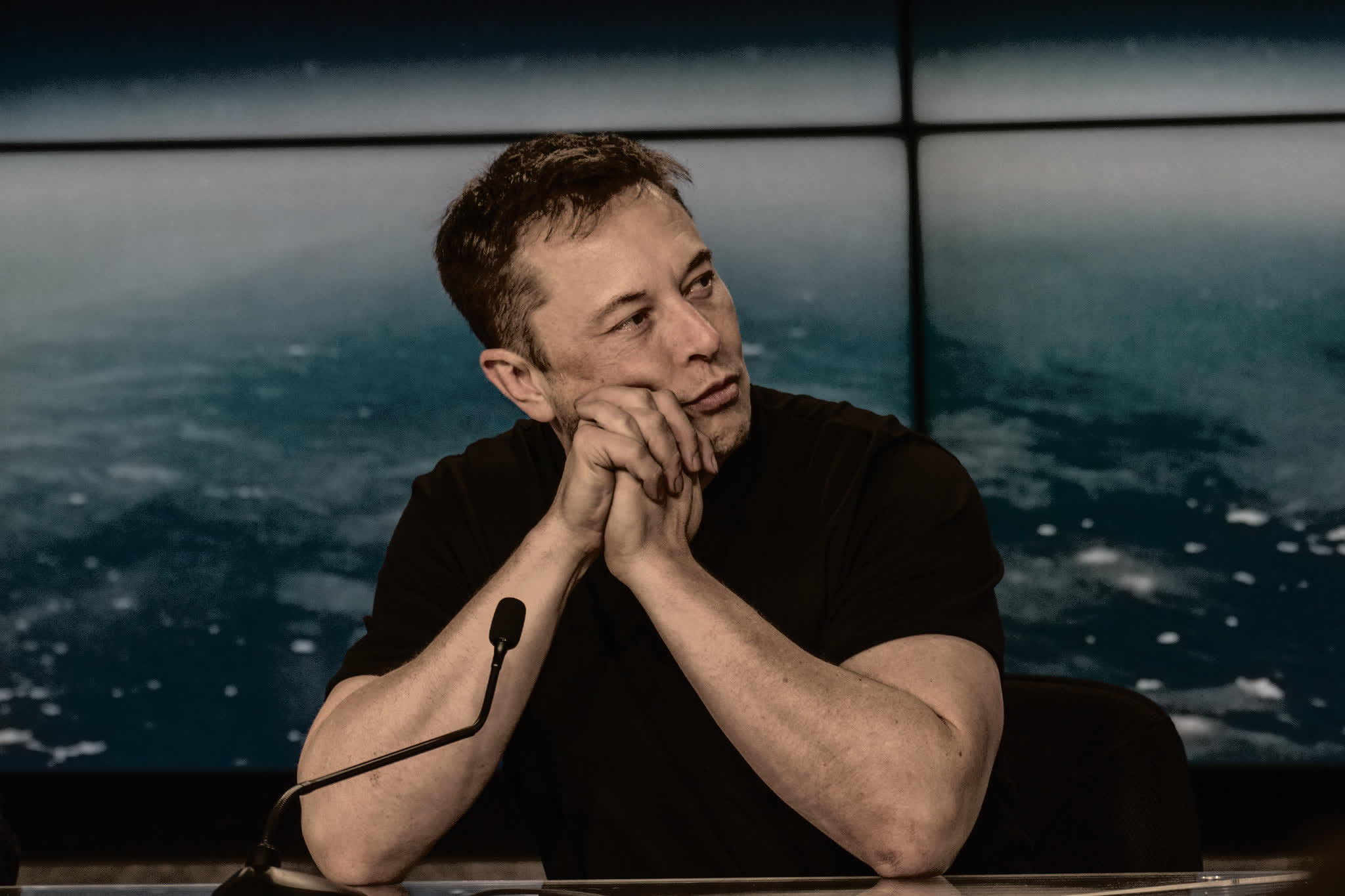In a nutshell: Elon Musk turned off Starlink to foil a Ukrainian drone attack on the Russian naval fleet in Crimea last year over fears that Vladimir Putin would retaliate with a nuclear strike, according to a new biography.
In an excerpt of Elon Musk by Walter Isaacson, CNN quotes a section claiming Musk secretly ordered Starlink engineers to turn off satellite communications near the Crimean coast in 2022 as Ukrainian submarine drones approached the Russian naval fleet for a surprise attack.
Isaacson writes that as the drones neared the vessels, they "lost connectivity and washed ashore harmlessly." Ukrainian officials reportedly begged Musk via text to turn the service back on. They told the CEO about the submarine drones' capabilities, and while Musk said he was impressed by the design, he wouldn't turn coverage back on for Crimea.
Received the second shipment of Starlink stations! @elonmusk keeps his word! Thank you for supporting Ukraine and peace in the entire world! @OMarkarova thanks! pic.twitter.com/hNZwsXkOCT
– Mykhailo Fedorov (@FedorovMykhailo) March 9, 2022
Mykhailo Fedorov, a deputy prime minister of Ukraine, was one of those begging Musk to restore coverage. "I just want you – the person who is changing the world through technology – to know this," Fedorov told Musk.
It's claimed that the reason behind Musk's decision was a fear that Russia would respond to the attack with the use of nuclear weapons, which stemmed from the billionaire's conversations with senior Russian officials.
Musk reportedly said that Ukraine was "going too far" in threatening a "strategic defeat" on Putin's forces, referring to the drone attack as a "mini Pearl Harbor."
CNN writes that as the situation continued, Musk was "soon on the phone with President Joe Biden's national security adviser, Jake Sullivan, the chairman of the joint chiefs, Gen. Mark Milley, and the Russian ambassador to the US to address anxieties from Washington, DC, to Moscow."
"How am I in this war?" Musk asked Isaacson. "Starlink was not meant to be involved in wars. It was so people can watch Netflix and chill and get online for school and do good peaceful things, not drone strikes."
It's been a rocky road for Starlink in Ukraine. SpaceX has supplied over 25,000 terminals to the country and maintained them since the war began, helping keep the nation's critical infrastructure and its citizens online as Russia continues its assault. This has led to Russia's threat that the satellites could become a legitimate target. Former Russian space chief Dmitry Rogozin also made a veiled threat against the Tesla boss' life.
Musk warned in October that with Starlink donations to Ukraine exceeding $100 million, his company could not foot the bill forever, suggesting that the Pentagon should help with costs. But he did a U-turn days later, confirming SpaceX would fund Starlink in Ukraine "indefinitely."
Relations became frostier in February when SpaceX limited Ukraine's ability to use the Starlink satellite service for offensive military purposes.
This is highly likely to be the outcome in the end – just a question of how many die before then
– Elon Musk (@elonmusk) October 3, 2022
Claims that Musk stopped an attack on Russian military equipment are unlikely to go down well in Ukraine, which was particularly angry about the world's richest man's "peace plan" last year. He suggested a redo of the sham elections that took place in occupied areas of Ukraine that led to Putin authorizing their annexation, but this time they are performed under UN supervision, and Russia must leave if it is the will of the people.
Musk did once offer to fight Putin in single combat for the future of Ukraine, but that seems about as likely as Musk fighting Mark Zuckerberg.
